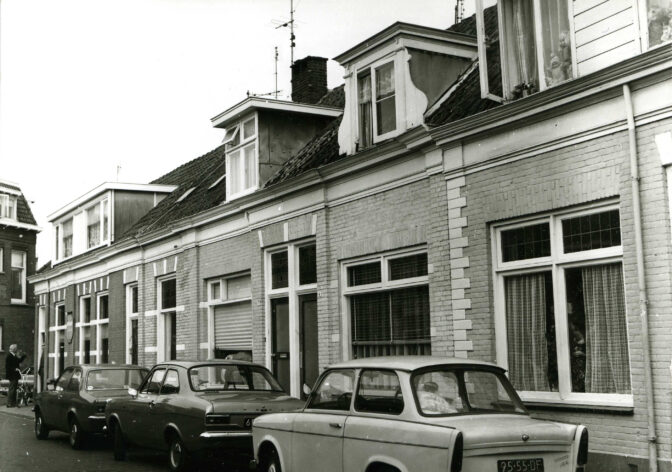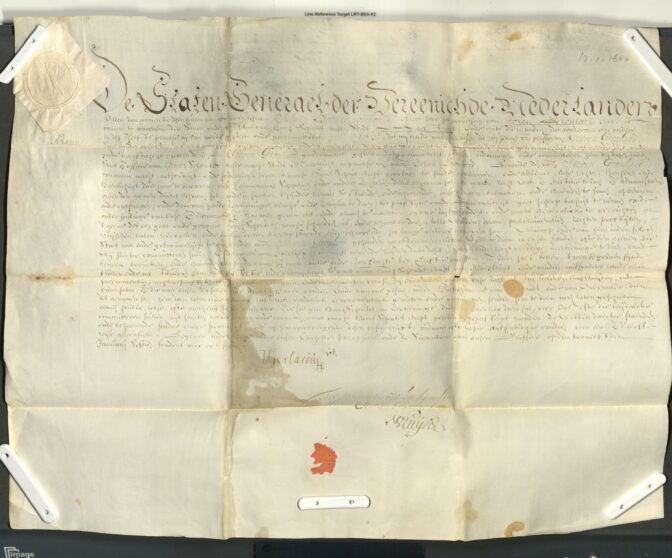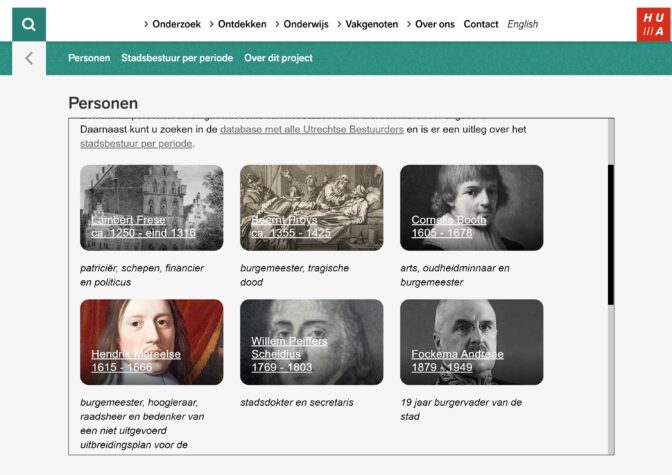Here is an overview of the new sources, websites, and news from archives announced last month.
Sources
- Several archives are making progress with the national project to digitize notarial records:
- Scans of notarial records of Maastricht and Roermond (1896-1905) are now available at Archieven.nl.
- Scans of notarial archives of Appingedam (1812-1922) are available at Groninger Archieven.
- Scans of notarial records of Jutphaas (1694-1842) are now available at Utrechts Archief.
- 30,000 notarial records of Utrecht (1780-1811) have been indexed and are now searchable at Utrechts Archief.
- Almost 50,000 more notarial records of Amsterdam are now indexed at Stadsarchief Amsterdam, for a total of over 3 million searchable names.
- Several transcriptions of tax records, manorial records, and court records from places in the Achterhoek region of Gelderland are available via Genealogiedomein.
- Indexes of several church records and court records from the east of Noord-Brabant have been added to the genealogical database of the Brabants Historisch Informatie Centrum.
- Transcriptions of court records from Alblasserdam are available via Geneascript.
- Several transcriptions of Limburg baptismal records were added to Genbronnen.
- Transcriptions of Deurne baptisms and marriages were added to Genbronnen.
- The records of Adriaan Blok (1653-1726), a cloth merchant from Amsterdam, has been scanned and is available at the Stadsarchief Amsterdam website. In his will, Blok determined that the proceeds of his house should be used to support family members. The archive contains information about tenants and beneficiaries.
- A collection of street photographs of Zwolle from the 1960s and 1970s is now available via Collectie Overijssel. The photographs can be downloaded and reused under a Creative-Commons Attribution 4.0 license (CC-BY).

Houses at the Spoorstraat in Zwolle. Credits: Collectie Overijssel (CC-BY)
Archives
- Most archives are now open at full capacity again. The 1.5 meter distancing measure has been lifted. Check the website for the archive you want to visit for details.
- A new archive law is in the works, which may become law on 1 January 2024. One controversial part of the new law is the ability for archival creators to suspend transfer to a government archive. Under the current law, that must be done within twenty years. The details are still being debated. [Source: Nationaal Archief]
- The Regionaal Historisch Centrum Limburg will temporarily stop acquiring private archives and collections. Their focus this year will be on moving the regional archives in Heerlen to a new repository. [Source: RHCL]
- The Regionaal Historisch Centrum Limburg acquired a letter appointing Steven Groulard was appointed as sheriff of Maastricht after the death of his father on 12 January 1664. [Source: RHCL]

Websites
 Archieven.nl improved their image viewer. The image viewer now has three buttons: information about the image, sharing the link, and downloading the image. Please note that there may be restrictions on reuse; check the information tab for more information. The viewer is not only visible on the main Archieven.nl site but also on the websites of participating archives.
Archieven.nl improved their image viewer. The image viewer now has three buttons: information about the image, sharing the link, and downloading the image. Please note that there may be restrictions on reuse; check the information tab for more information. The viewer is not only visible on the main Archieven.nl site but also on the websites of participating archives.- A new website was launched with sources about World War II in Limburg: Oorlogsbronnen Limburg.
- A new website about Utrecht government officials launched: Utrechtse Bestuurders. It has information about more than 5,000 people who held public offices in the past 900 years.
Projects
- The civil court cases of the provincial courts of Holland, Friesland, and Utrecht will be digitized. The resulting scans will be transcribed using handwritten text recognition technology. [Source: Tresoar]
- The Brabants Historisch Informatie Centrum is looking for old movies about village life in Brabant. The results will be uploaded to Brabant in Beelden [Brabant in Images].
- The Central Bureau for Genealogy is making good progress with their project to digitize the personal record cards. They have now scanned 5 out of 6 million personal record cards. These personal record cards will not be published online since they are not public yet, but having them available digitally will speed up the order process and help to preserve the original cards. The cards cannot be ordered for the duration of the digitization project. [Source: CBG]


